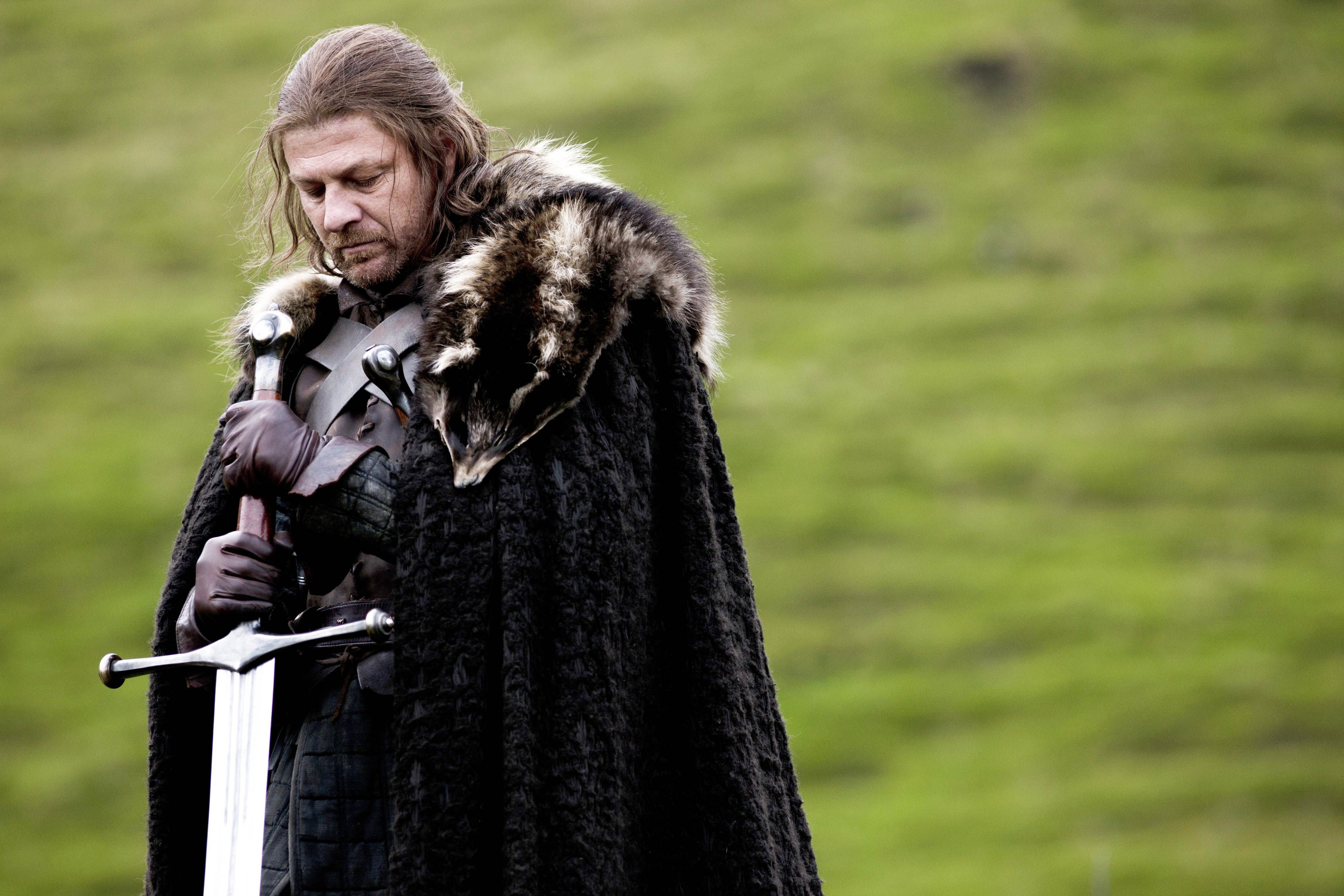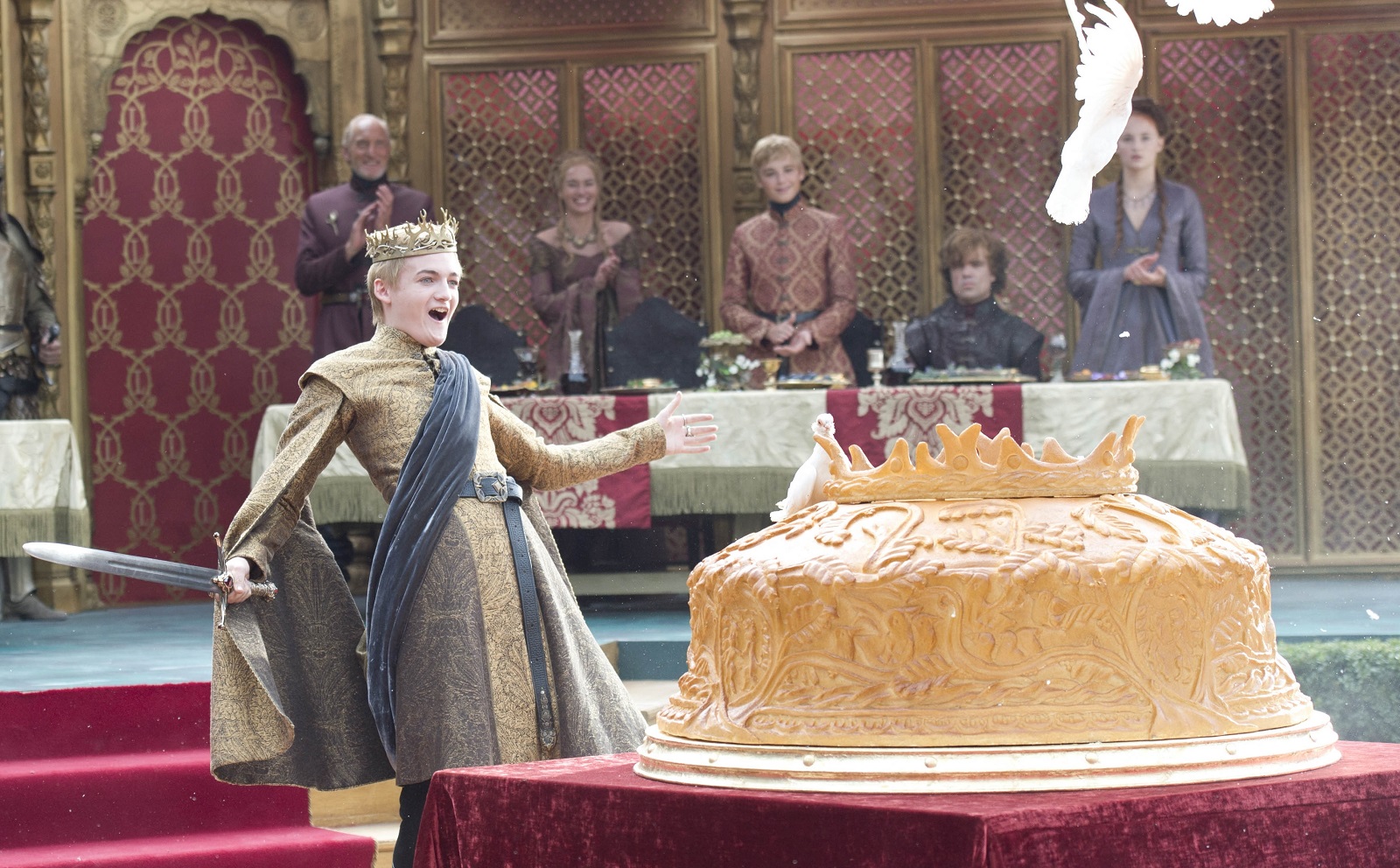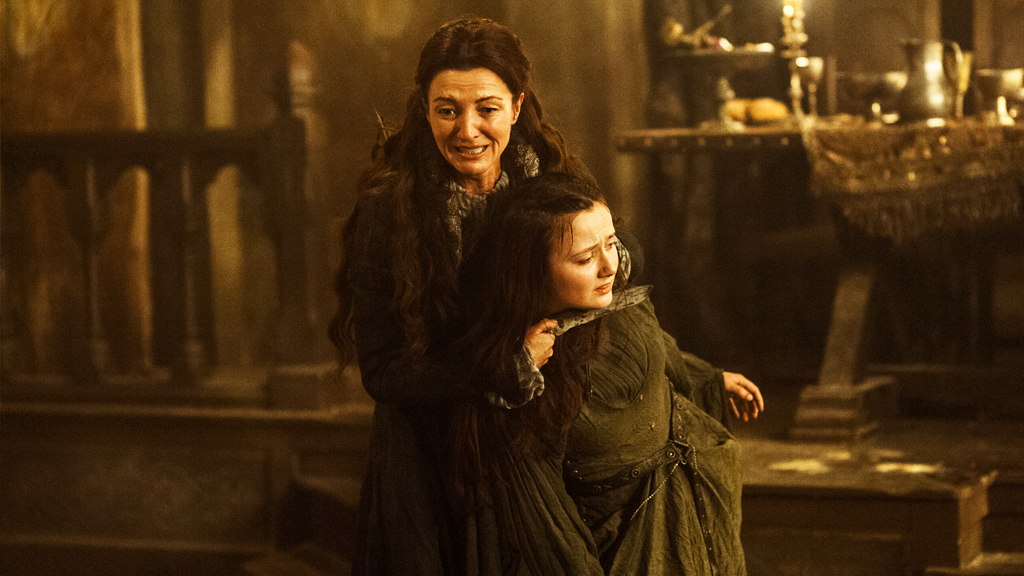By Marc N. Kleinhenz
A Song of Ice and Fire, the long-running and still-incomplete saga of books that, of course, HBO’s Game of Thrones was based upon, has been part of my life since 2006, when I tore through the novels to help pass the time on my considerable commute while living in Japan. I’ve since written about both the literary and television series for at least six different websites, edited and published a small berth of ebooks on the subject, obsessively listened to the soundtracks while working, and – my personal favorite – prepared countless Feast of Ice and Fire meals with friends (and, even, befriended that cookbook’s author in the process).
All of which, I suppose, helps to explain the realization that has been slowly dawning on me: I miss Game of Thrones – terribly.
It’s an epiphany that first hit me in early March, the usual period of time when I would begin revisiting past episodes and prepare my articles for the new ones. It stayed with me during the advent of our current COVID-19 isolation, and it’s become a regularly recurring companion all the way ‘til now, in late April, when all but one of Thrones’s eight seasons would either just be starting or have already been on the air for the past few weeks.
But along with this longing has come another – and, perhaps, more interesting – emotional punctuation mark: the question of why. Why do I miss this show that, let’s be honest, was brutal more often than uplifting, relied on heaps of shock value and gratuitousness, left a huge swath of its characters in various states of exile (or outright death) in its resolution, and, even for us book readers, was something of a traumatic experience? I think there’s more to it than just the underlying source material having been a consistent part of my life for the past decade-and-a-half, and more to it than my admittedly questionable mental state.
I think this is a question worth exploring, not for whatever myriad faults or ticks that can be exposed in my psyche, but to help assess the value – and the legacy – of HBO’s most popular creation (value and legacy being two properties that Game of Thrones will forevermore possess, regardless of whether co-creators and -showrunners David Benioff and D.B. Weiss stuck the landing of its climax).
Game of Thrones’s environments
Like my nearly life-long obsession with The Legend of Zelda, Star Wars, and theme parks, Game of Thrones did something especially well, and did so consistently across all eight seasons: it created, essentially, whole worlds for the audience to fall into.
The location scouting, set and art design, and cinematography are, in many respects, second to none. The vibrancy of the environments, the majesty of the natural splendor, and the authenticity of the production details – even those wholly fantastical in nature – all combined, scene after scene and episode after episode, to construct an entire reality that we all could get lost in (and, it seems, we often did, and still often do). It didn’t matter that the events that transpired in these breathtaking castles tended to be grotesque, or that the epic vistas were populated with truly wretched individuals – you believed that you were up 700 feet in the air with Jon Snow on the Wall, or walking the twisted streets of King’s Landing with Cersei Lannister, or riding the plains of the Dothraki Sea with Daenerys Targaryen.
And that’s the other thing – beyond the verisimilitude of the settings, there was the sheer variety of them. It’s hard to think of another series, either on the big or small screen, that practically bursts with so many different and distinct environs; from the Seven Kingdoms of Westeros to the Free Cities of Essos and beyond, Game of Thrones covers more ground (no pun intended) than any number of other properties combined.
It’s an unbelievable feat, and a beautiful one. When coupled with Ramin Djawadi’s similarly luscious score and the usually stellar performances of a cast that is itself equally as expansive, it’s actually little wonder that the TV show has struck a chord and continued to stay with me despite all the psychological injuries it inflicted across its eight-year run.
And speaking of that cast of characters…
Game of Thrones is a soap opera
Let’s start with an admission that may or may not be an open secret: HBO’s biggest series is a glorified (and gorified) soap opera.
Characters get married – and then divorced, but only kind of, and only when one of them flees for her life with another man who clearly lusts after her. There are abusive relationships (and, sometimes, incestuous ones), and extra-marital affairs a-plenty, and individuals who go missing for years on end and then return – even from the dead (literally). There are betrayals, murders, and other life-changing developments on a regular, if not weekly, basis, and all of it slathered on with enough salaciousness to make Tony Soprano sit up and take notice.
This is the stuff that loyal television watching is made of, stretching all the way back to the medium’s earliest days, when the content was created around the desire to sell commercial products to housewives (the modern habit of binging can eat its heart out – it still has nothing on the half-century-plus of soap operatic history). But calling a spade a spade should do nothing to lessen the explanation of its everlasting appeal; although most soaps are, clearly, nothing but fluff, they still trade in the fundamentals of drama that have captivated audiences ever since the earliest cave paintings. And consider this: the best stories just take the core histrionics of our modern soap operas and add on thematic substance and character development atop of it, which is precisely what Game of Thrones did (and, for the most part, did exceedingly well).
The other all-important elevation of the genre that HBO’s show accomplishes – and, no, we don’t have to get into whether Weiss and Benioff did so with aplomb (or not) – is that it actually had that magical and elusive item called an ending. The criticalness of this point cannot be overstated, despite its seemingly mundane nature; this is the very reason why, say, comic books (that other variation on the soap opera) can shed readers at an alarming clip over the years but that the Marvel Cinematic Universe keeps expanding its own viewership – even Iron Man’s story, after all, must reach a climax, despite how many throngs of additional fans he has picked up along the way (and how much of a soap his own journey has become, with one-night trysts, on-and-off-again engagements, a muddled relationship with his [costumed] identity, and, at the end, a family of his own).
When taken altogether, you get the up-and-down-again travails of the mighty Tyrion Lannister, or the noble suffering of stoic Jorah Mormont, or the sullen-but-handsome brooding of the wayward Jon Snow – and I wouldn’t have it any other way.
Game of Thrones’s community
Obviously, I wasn’t taking in Game of Thrones by myself – the whole world was reacting to the series over the course of its eight seasons, building a truly staggering audience and accruing a whole assortment of cultural artifacts along the way.
Now, I have to admit – somewhat regrettably – that I never got into the trend of holding watch parties every Sunday night, gathering friends to bear witness to that week’s particular brutalities while also usually consuming mass quantities of food and wine (although, in the first few seasons, I did make it a point to watch the series with an Unsullied buddy, just to engage in a little schadenfreude as he experienced Eddard Stark’s beheading or the primal violation that was the Red Wedding for the first time). But I did manage to watch the show’s entire run in real time, something I had missed out on with such HBO heavies as The Sopranos and Deadwood and, even, Boardwalk Empire, and I couldn’t help but let the countless tweets, YouTube compilations, and other reactionary sundries seep into my (sub)consciousness. When it came to Thrones, no viewer was an island unto himself – and we were all the better for it.
Let’s invoke that Star Wars parallel again. David Benioff and Dan Weiss’s (and, sure, author George R.R. Martin’s) baby built for itself an entire cultural moment – and movement. It’s yet to be seen whether this epoch-defining period can make the transition into a longer, permanent presence, just as filmmaker George Lucas’s cinematic baby did with the multimedia attachment of its so-called Star Wars Expanded Universe – this is, perhaps, where House of the Dragon and other potential spinoffs come into play – but its legacy is already well ensconced. In fact, another pop-culture comparison is probably in order here: The X-Files became a touchstone for an entire generation of television viewers as well as creators, with its writing-producing staff going on to pollinate a wide berth of subsequent projects within the medium – most notably, perhaps, being Breaking Bad, in more ways than one. (And, hey, let’s not forget that X-Files had an unfathomably terrible ending – twice. This still doesn’t take away from the sublimity of its previous seasons and/or films.)
So, so long, Game of Thrones – and its wider berth of fans. It was a legendary ride, one that I would gladly do all over again in a heartbeat, and I’m glad that you were there by my side – even if a bit remotely.
Marc N. Kleinhenz is the editor-in-chief of Orlando Informer. He’s also written for 31 other sites (including Screen Rant, IGN, and Tower of the Hand, where he serves as consulting editor), has appeared on radio and television news as a pop-culture specialist, served as a consultant on the theming industry, and has even taught English in Japan.
The post I Miss Game of Thrones. But Why? appeared first on Watchers on the Wall.
Via http://watchersonthewall.com




No comments:
Post a Comment